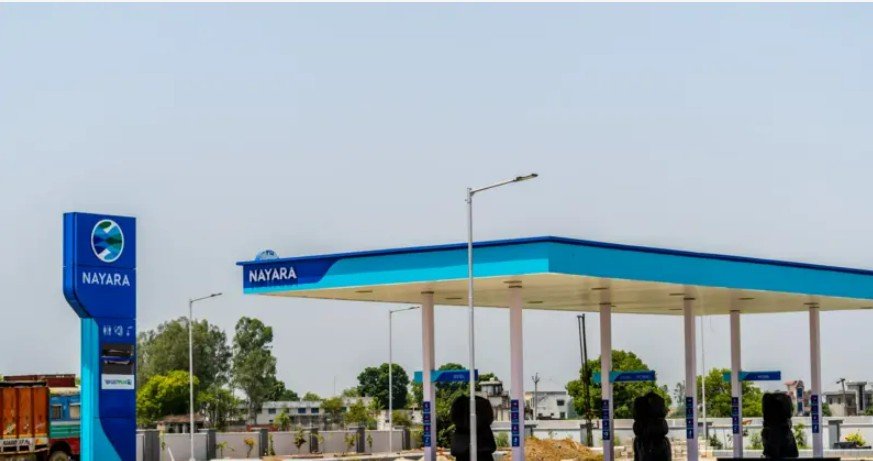The European Union (EU) has announced sanctions on Gujarat-based Vadinar Refinery, operated by NAYARA Energy Limited, a major Indian oil refiner partially owned by Russia’s Rosneft. This move is part of a broader effort to tighten restrictions on Russia’s energy exports due to the ongoing war in Ukraine. The announcement comes amid growing pressure in the U.S. Congress to impose punitive measures on countries purchasing Russian oil, including proposed tariffs as high as 500% on Indian imports.
This decision significantly impacts India, which imports nearly 40% of its crude oil from Russia. According to Bloomberg and The Economic Times, NAYARA and Reliance Industries together accounted for 45% of all Russian crude imported into India this year, highlighting their central role in refining and re-exporting fuel—often to Europe.
Industry analysts suggest that the EU’s sanctions could be a major blow not only to NAYARA but also to Reliance Industries, India’s largest private-sector oil refiner. Both companies risk losing access to lucrative European fuel markets, particularly for diesel exports. Reliance has been purchasing discounted Russian crude under a deal with Rosneft, but now faces a tough choice: either stop buying cheap Russian oil or forfeit profits from European fuel sales.
Ajay Srivastava, founder of the Global Trade Research Initiative, told the BBC that the full scope of the EU’s restrictions is unclear. “We do not have public data on exactly how much oil each Indian company is importing from Russia or how much is being re-exported after refining,” he said. “NAYARA is named specifically because Rosneft holds a 49% stake, and even the rest of its ownership is linked to Russian investments.”
Srivastava added that with the EU’s ban now in immediate effect, refined fuel made from Russian crude can no longer enter European markets via India. This development is likely to severely hit India’s petroleum exports to Europe, which have grown substantially over the past year. Kepler data shows India exported over 200,000 barrels per day of refined petroleum to the EU in 2023—double the previous year.
Rosneft’s plans to sell its stake in NAYARA may also face setbacks. Bloomberg reports that discussions were underway with potential buyers, including Saudi Aramco and Reliance Industries. However, EU sanctions may now complicate such deals. If Reliance were to acquire NAYARA, it could risk losing its access to European markets due to its association with Russian oil.
Furthermore, Rosneft reportedly wants to exit NAYARA because sanctions have blocked it from repatriating profits from India. The Russian company and its partners had acquired NAYARA from Essar Group in 2017 for $12.9 billion.
India’s Ministry of External Affairs has criticized the EU’s unilateral action, stating, “India does not recognize unilateral sanctions. We are a responsible nation and committed to our legal obligations. Energy security is a top priority, and there must be no double standards in energy trade.”
Despite this, India has limited options. As Europe increasingly seals off its markets—whether for steel or fuel—India’s export economy feels the squeeze. Without clear alternatives, the EU’s move signals a major shift that could reshape India’s energy diplomacy and its role in global crude oil trade.








